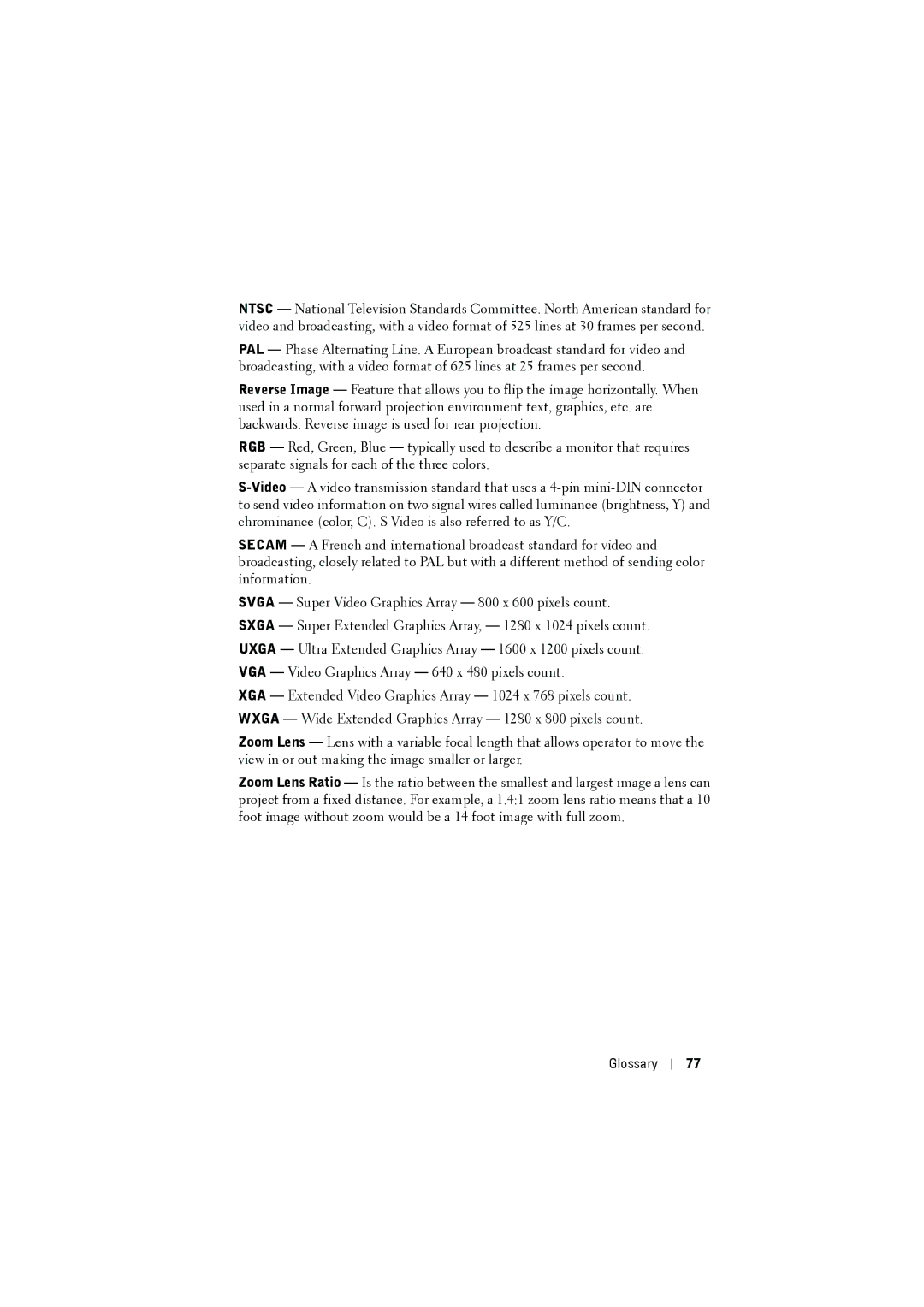NTSC — National Television Standards Committee. North American standard for video and broadcasting, with a video format of 525 lines at 30 frames per second.
PAL — Phase Alternating Line. A European broadcast standard for video and broadcasting, with a video format of 625 lines at 25 frames per second.
Reverse Image — Feature that allows you to flip the image horizontally. When used in a normal forward projection environment text, graphics, etc. are backwards. Reverse image is used for rear projection.
RGB — Red, Green, Blue — typically used to describe a monitor that requires separate signals for each of the three colors.
SECAM — A French and international broadcast standard for video and broadcasting, closely related to PAL but with a different method of sending color information.
SVGA — Super Video Graphics Array — 800 x 600 pixels count. SXGA — Super Extended Graphics Array, — 1280 x 1024 pixels count. UXGA — Ultra Extended Graphics Array — 1600 x 1200 pixels count. VGA — Video Graphics Array — 640 x 480 pixels count.
XGA — Extended Video Graphics Array — 1024 x 768 pixels count. WXGA — Wide Extended Graphics Array — 1280 x 800 pixels count.
Zoom Lens — Lens with a variable focal length that allows operator to move the view in or out making the image smaller or larger.
Zoom Lens Ratio — Is the ratio between the smallest and largest image a lens can project from a fixed distance. For example, a 1.4:1 zoom lens ratio means that a 10 foot image without zoom would be a 14 foot image with full zoom.
Glossary
77
